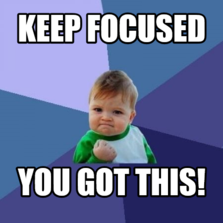Starter (pair share): What do you know about totalitarian/fascist regimes in human history and in the present? What happens there (or doesn't happen there?) How do you think these regimes come to power and maintain that power? How do you imagine the people living in these regimes feel about their government?
PAUSE: Take a deep breath of beautiful democracy, kids! The fact that we are having these critical learning experiences is a privilege. Take it in.
Did you, too, O friend, suppose democracy was only for elections, for politics, and for a party name? I say democracy is only of use there that it may pass on and come to its flower and fruit in manners, in the highest forms of interaction between [people], and their beliefs -- in religion, literature, colleges and schools -- democracy in all public and private life...."
-Walt Whitman
PAUSE: Take a deep breath of beautiful democracy, kids! The fact that we are having these critical learning experiences is a privilege. Take it in.
Did you, too, O friend, suppose democracy was only for elections, for politics, and for a party name? I say democracy is only of use there that it may pass on and come to its flower and fruit in manners, in the highest forms of interaction between [people], and their beliefs -- in religion, literature, colleges and schools -- democracy in all public and private life...."
-Walt Whitman
Peer and Self Critique Protocols
TODAY:
In your groups, follow the steps to “tune” each other’s’ project ideas.
Step 1: Presenter shares draft and/or project plans. Discuss your plans for both your written argument and your visual. Presenter should also share struggles and a focusing question on which the group should center the tune.
Step 2. Group members ask questions to better understand the project idea and where the presenter wants to take it.
Questions:
- How are you appealing to the values of the other side?
- How are you establishing common ground?
- What solution or resolution are you proposing?
- How are you using pathos/ethos/logos?
- How will your visual engage your audience?
- Other questions?
Step 3. Group has a discussion about the project, addressing the focusing question and sharing ideas. Presenter should take notes during this phase.
Step 4. Rotate and repeat
Annotate your draft. Mark and answer the following. Submit with Draft tonight by midnight with Self-Critique
1. Highlight the place in the draft where you feel you have captured the thesis of your argument. Using the comment function, label it SOLUTION or RESOLUTION or THESIS.
2. Mark 2-3 places in the draft where your research shows up. In the comment field, explain how something in your research informed your rhetoric. Specify which source if possible.
3. Mark a place in the draft where you are clearly addressing the values and/or best arguments of the other side.
4. Label places where you have incorporated Aristotelian appeals (LOGOS/PATHOS/ETHOS). Explain in the comments how and why you have chosen to incorporate them the way that you have.
5. Answer the following in writing at the bottom of your draft:
a. How are you attempting to establish common ground with your audience?
b. How have you appealed to your audience’s values/beliefs/emotions?
c. Comment on how the form, beauty, or force of your project impacts the rhetoric. How does your genre allow you to achieve your goals?
